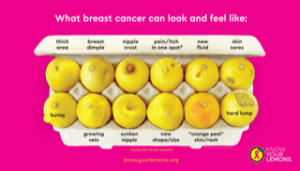
NICE rejects Roche’s immunotherapy Tecentriq in unresectable metastatic triple A breast cancer
pharmafile | October 3, 2019 | News story | Sales and Marketing | Cancer, NICE, Roche, breast cancer, pharma, tecentriq
NICE has revealed its decision not to approve Roche’s immunotherapy Tecentriq (atezolizumab) for use on the NHS in England and Wales for the treatment of unresectable, metastatic triple A breast cancer.
The decision puts the UK watchdog at odds with the FDA and EMA, who both saw fit to approve the drug – their first approved therapy for triple A breast cancer patients. Tecentriq works by blocking PD-L1, and is the first immunotherapy to specifically target tumours which express the protein by 1% or more. Triple negative breast cancer affects around 2,000 in the UK, and it’s estimated that around 600 of these would be eligible to receive Roche’s therapy.
Data submitted in support of the application showed that, when combined with Abraxane (nab-paclitaxel), Tecentriq extended progression-free survival by 2.5 months compared to Abraxane plus placebo, and improved overall survival by around 9.5 months.
However, NICE raised concerns that none of these data compared Roche’s combo to comparable therapies used at this stage of disease, raising questions over the validity of the findings, and thus the institute decided that it could not consider the treatment to a cost-effective use of NHS resources.
Because there is no indication that these uncertainties could be addressed with a further trial, the drug is not eligible for the Cancer Drugs Fund either.
“I know that today’s announcement will be disappointing for people with this type of breast cancer as well as for their families and carers. Atezolizumab provides for a new way of treating people with significant unmet need, where targeted therapies have not been available to date,” commented Meindert Boysen, Director of the Centre for Health Technology Evaluation at NICE. “The committee heard that the availability of a new treatment that increases progression-free survival compared with chemotherapy alone will give hope to patients because it is important to them to be able to maintain a good quality life for as long as possible. We are committed to working with the company to try to resolve the issues identified by the committee. In the meantime, I would encourage anyone with an interest in this topic to give us their feedback on this draft guidance.”
Matt Fellows
Related Content

Novartis receives SMC approval for early breast cancer treatment
Novartis has announced that its treatment for early breast cancer, Kisqali (ribociclib), has received approval …

Micrima announces upcoming launch of new UK breast cancer assessment
Breast cancer remains one of the leading health threats to women over 35 in the …

Pierre Fabre partners with Know Your Lemons Foundation for breast cancer awareness
The campaign focuses on early detection and education Pierre Fabre Laboratories has announced a partnership …






